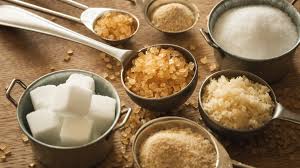We know avoiding large amounts of sugar can help us steer clear of certain health problems. But who doesn’t love a sweet treat now and then? After all, experts say having balance in your diet is beneficial. That’s where healthy sugar substitutes come in!
They allow you to enjoy your sweetened coffee or baked goods without the health impacts that can come from overdoing it on refined sugar. But here’s what most people don’t realize: Natural sugar substitutes aren’t just stand-ins for the real thing. They’re functional ingredients with their own impressive health benefits—from protecting your teeth to stabilizing blood sugar to supporting weight loss. We spoke to nutrition and health experts to uncover which sugar substitutes deliver the biggest health wins and why they work.
The benefits of healthy sugar substitutes
“Americans eat far too much added sugar, leading to excess calories and increased risk for type 2 diabetes and heart disease,” says Romy Nathan, MPH, RDN, is a seasoned nutrition consultant. “Replacing part of the added sugar in your diet with low- or no-calorie sweeteners can help cut calories, reduce blood sugar spikes and protect teeth all without giving up sweetness.”
The 3 best healthy sugar substitutes
If you’re interested in reducing your sugar intake while still satisfying your sweet tooth, consider these healthy sugar substitutes. Not only are they easy to incorporate into your favorite foods, drinks and recipes, but they’re healthier alternatives to table sugar and can deliver some impressive long-term perks.
Allulose for steady blood sugar levels
“Allulose (sometimes called D-allulose) is a rare sugar found in small amounts in certain fruits and other foods,” says Joseph Mercola, DO, FACN, a Board-Certified Family Physician and Author of Your Guide to Cellular Health. “It provides sweetness similar to sugar, but contributes far fewer calories and appears to dampen post-meal blood-glucose and insulin responses.”
It’s naturally present in small amounts in foods such as figs, raisins and maple syrup, says Dr. Mercola. And Nathan notes you can also find it in “zero-sugar” baked goods, yogurts, syrups and drinks.

